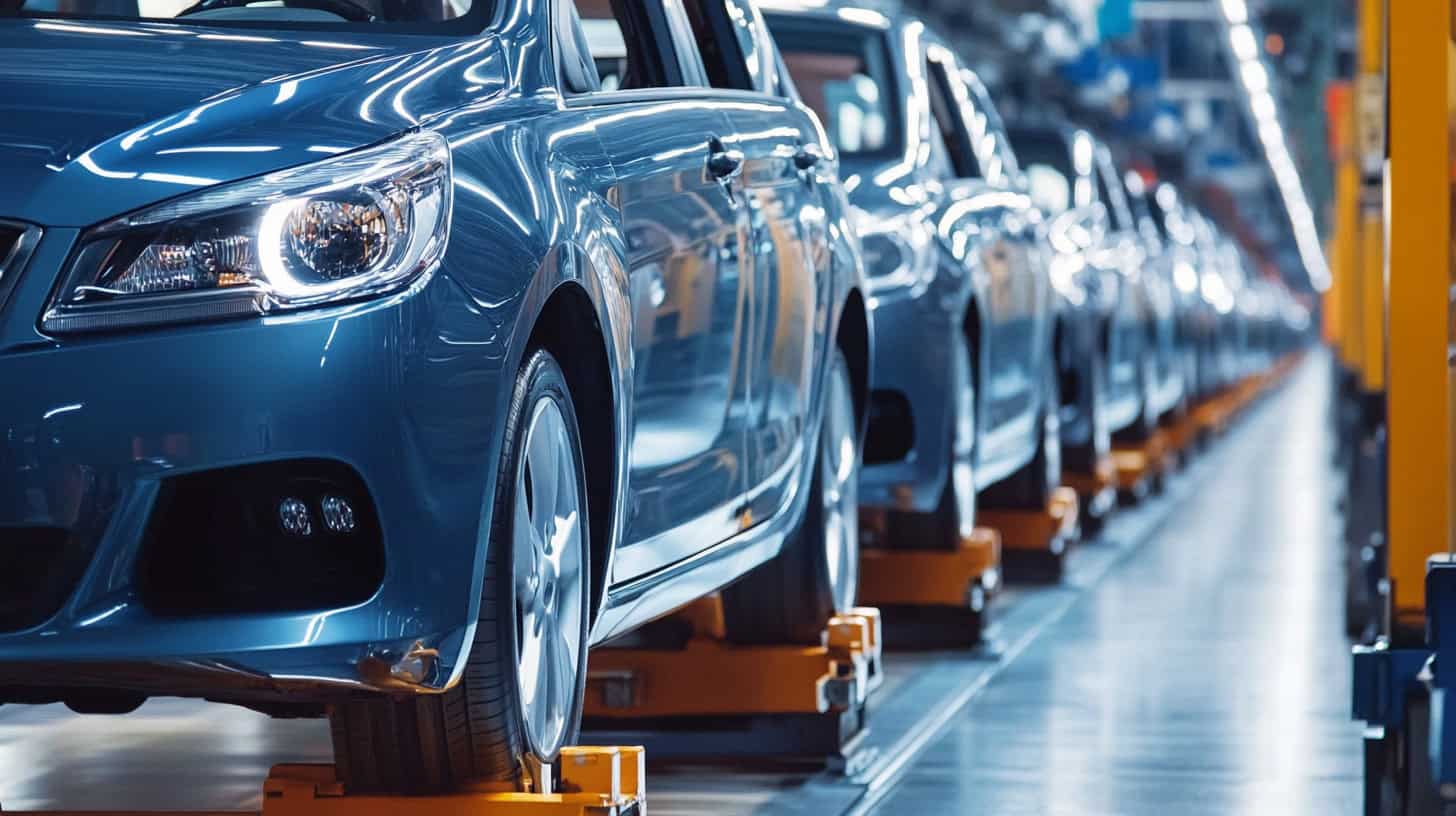
The Automotive Industry: Navigating Change and Innovation
The automotive industry, a cornerstone of global manufacturing and technological innovation, is undergoing a period of unprecedented transformation. From the rise of electric vehicles (EVs) to the development of autonomous driving technologies, the sector is facing both exciting opportunities and significant challenges. This article explores the current state of the automotive industry, its key trends, and how logistics companies like General Cargo are playing a crucial role in supporting this evolving landscape.
Current State of the Automotive Industry
The global automotive industry has shown resilience in recent years, rebounding from the challenges posed by the COVID-19 pandemic. In 2023, global light vehicle production reached approximately 89.8 million units, with expectations of slight growth or stability in the coming years. However, the industry faces a complex set of challenges, including supply chain disruptions, changing consumer preferences, and the urgent need for sustainable transportation solutions.
Key Trends Shaping the Automotive Sector
Electric Vehicle Revolution
Autonomous Driving Technology
Connected Cars and IoT Integration
Sustainability and Circular Economy
Changing Ownership Models
Digitalization of Sales and Marketing
Challenges Facing the Automotive Industry. While the industry is poised for innovation, it also faces significant challenges:
- Supply Chain Disruptions
The global semiconductor shortage that began in 2020 highlighted the vulnerability of automotive supply chains. Manufacturers are now focusing on building more resilient and diversified supply networks.
- Regulatory Pressures
Stricter emissions standards and safety regulations are driving up costs and complexity for manufacturers, particularly in developed markets.
- Talent Acquisition and Retention
As the industry shifts towards electrification and software-driven innovations, there’s a growing need for new skill sets, creating challenges in talent acquisition and workforce transformation.
- Geopolitical Tensions
Trade disputes, tariffs, and regional conflicts can disrupt global supply chains and market access for automotive companies.
- Economic Uncertainties
Fluctuating consumer confidence, inflation, and interest rates can impact vehicle demand and financing options.The Role of Logistics in the Automotive IndustryIn this complex and evolving landscape, efficient logistics play a crucial role in the success of automotive companies. This is where specialized logistics providers like General Cargo come into play, offering tailored solutions to meet the unique needs of the automotive sector.
How General Cargo is Supporting the Automotive Industry. General Cargo, with its extensive experience in global freight forwarding, has positioned itself as a key partner for automotive manufacturers and suppliers.
Here’s how General Cargo is helping the industry navigate its current challenges:
- Comprehensive Logistics Solutions
General Cargo offers a full spectrum of logistics services tailored to the automotive industry, including:
- Transportation Management: Utilizing road, air, sea, and rail options to ensure efficient movement of vehicles, parts, and components.
- Warehousing and Fulfillment: Strategic locations across Europe for optimal inventory management and distribution.
- Customs Clearance and Documentation: In-house services to navigate complex international trade regulations.
- Returns Management and Customer Service: Supporting the entire lifecycle of automotive products.
- Strategic European Network
With active terminals in key locations across Italy, Germany, Spain, and France, General Cargo provides automotive clients with a robust distribution network. This strategic presence allows for efficient handling of both inbound supplies and outbound finished vehicles.
- Specialized Handling for Automotive Goods
General Cargo has developed expertise in handling sensitive automotive materials, including:
- Hanging textile transport for interior components
- Secure transportation of high-value electronic components
- Specialized handling for dangerous goods, such as batteries for electric vehicles
- Just-in-Time Delivery Support
The automotive industry relies heavily on just-in-time manufacturing processes. General Cargo’s efficient logistics network and real-time tracking capabilities help ensure that components arrive precisely when needed, reducing inventory costs and production delays.
- Sustainability Initiatives
As the automotive industry focuses on reducing its environmental impact, General Cargo is aligning its services with these goals. This includes optimizing routes for reduced emissions, exploring alternative fuels for its transport fleet, and supporting the logistics needs of the growing electric vehicle sector.
- Technology Integration
General Cargo leverages advanced technology to provide visibility and control throughout the supply chain. This includes:
- Real-time tracking of shipments
- Integration with clients’ ERP systems for seamless data flow
- Advanced analytics for continuous improvement of logistics processes
- Customs Expertise
With the complexities of international trade, particularly in the post-Brexit landscape, General Cargo’s expertise in customs procedures and documentation is invaluable for automotive clients navigating global markets.
- Flexibility and Scalability
The automotive industry’s demand can be volatile, influenced by various economic and market factors. General Cargo’s flexible logistics solutions allow automotive clients to scale their logistics operations up or down as needed, providing cost-effective solutions during both peak periods and slower seasons.
Future Outlook for the Automotive Industry. Looking ahead, the automotive industry is poised for continued transformation:
- Accelerated EV Adoption
As battery technology improves and charging infrastructure expands, electric vehicles are expected to gain an increasingly larger market share. This shift will require ongoing adaptation in manufacturing, supply chains, and after-sales services.
- Advanced Driver Assistance Systems (ADAS)
While fully autonomous vehicles may still be years away from widespread adoption, ADAS features will become increasingly sophisticated and commonplace, enhancing safety and driving experience.
- Software-Defined Vehicles
Cars are becoming more software-centric, with over-the-air updates enabling new features and improvements throughout a vehicle’s lifecycle. This trend will blur the lines between automotive and tech companies.
- Sustainable Manufacturing
The industry will continue to focus on reducing its environmental footprint, not just through electrification but also through more sustainable manufacturing processes and materials.
- Evolving Mobility Ecosystems
The integration of cars into broader mobility ecosystems, including public transport and micro-mobility options, will reshape how people think about transportation.
Conclusion
The automotive industry stands at a crossroads of innovation and challenge. As it navigates the transition to electric and autonomous vehicles, sustainability pressures, and changing consumer behaviors, the role of efficient and adaptable logistics becomes ever more critical. Companies like General Cargo, with their comprehensive logistics solutions and strategic European network, are playing a vital role in supporting the automotive industry through this period of transformation.
By providing flexible, technology-driven logistics services tailored to the unique needs of automotive manufacturers and suppliers, General Cargo is helping to ensure that the industry can meet the demands of tomorrow’s mobility landscape. As the automotive sector continues to evolve, the partnership between innovative car manufacturers and specialized logistics providers will be key to driving success in this dynamic and competitive global market.














